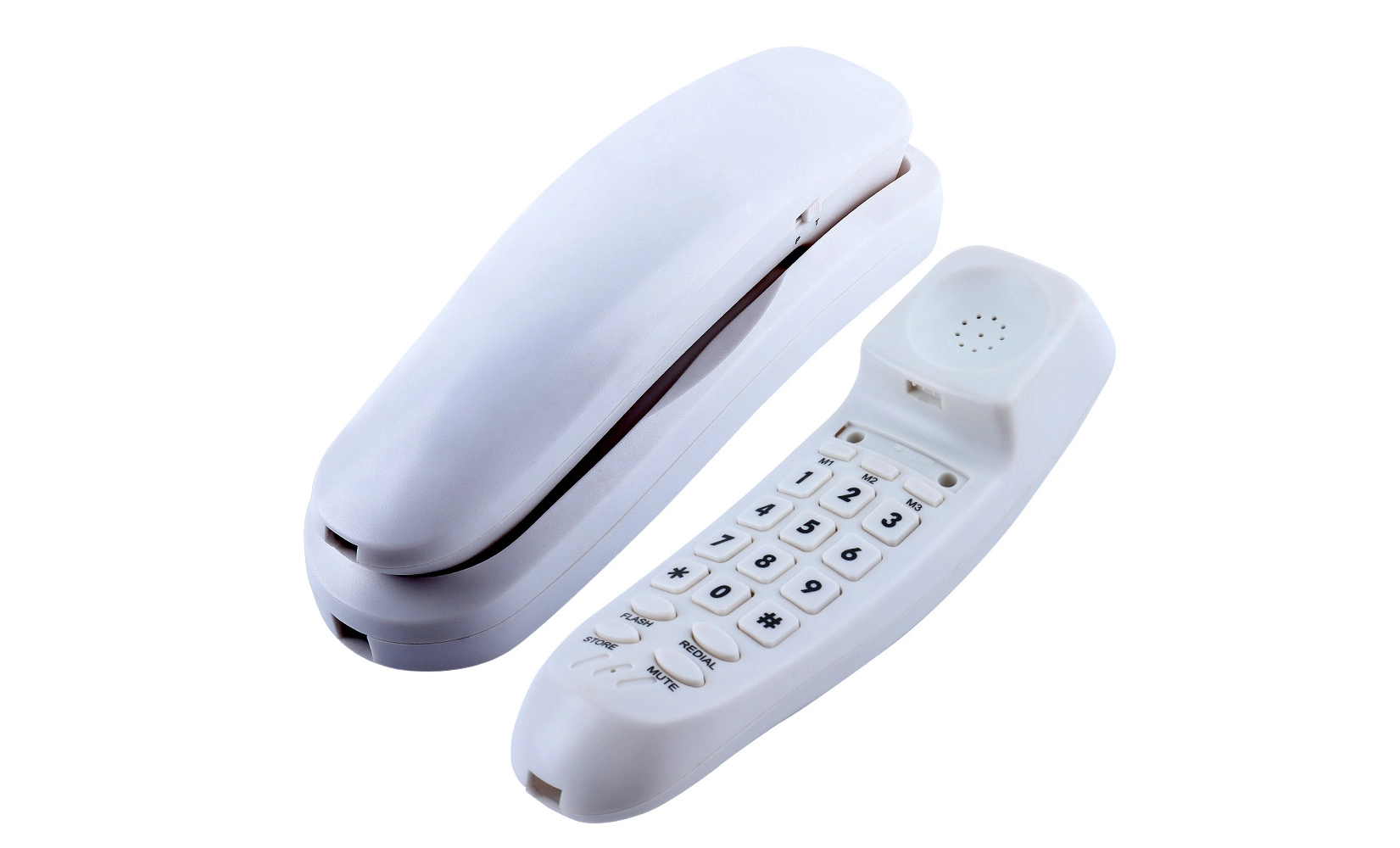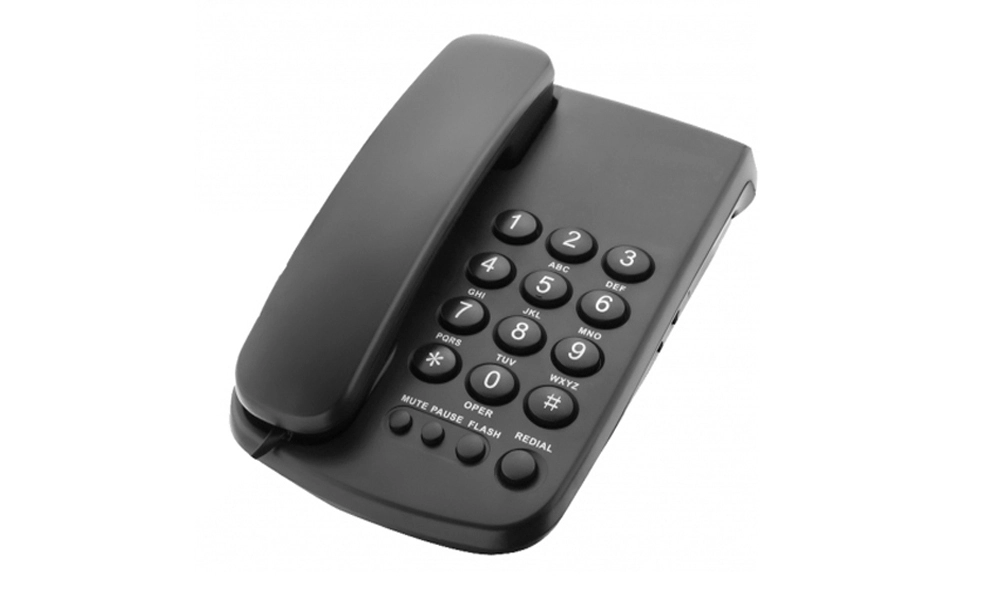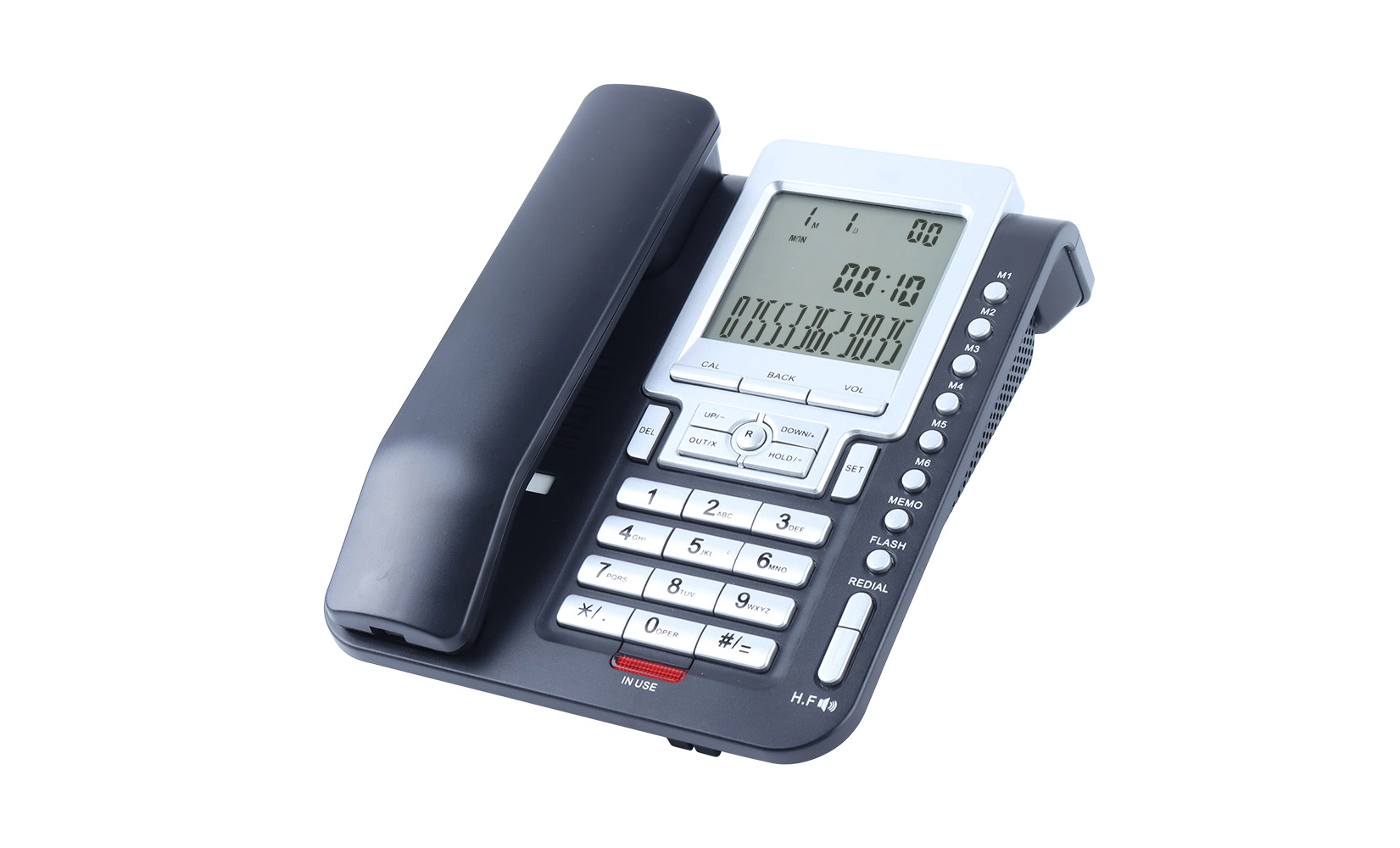Understanding Amplified Landline Phones and Their Benefits
Landline phones that are amplified are meant to help adults who have trouble communicating because they can't see or hear well. These gadgets are much better than regular phones in a number of ways, which makes them an important way to stay in touch with family and friends and stay independent.
What Makes Amplified Landline Phones Unique?
Amplified landline phones are different from regular phones because they can boost sound levels much more than regular phones can. This amplification can usually be changed to fit each person's hearing needs, and it can often go as loud as 50 decibels or more. On top of that, these phones usually have tone controls that let users change the frequency range to suit their own ears.
The graphic improvements are another important part. A lot of them have big, high-contrast buttons and screens that make them easier for people who have trouble seeing to read and use. Some more modern models even have bright lights or other visual ring indicators to let users know when a call is coming in.
The Importance of Clear Communication for Seniors
Seniors' health and quality of life depend on being able to communicate clearly. It helps keep people from being alone, which can cause health problems like sadness and memory loss. A safe way to talk, amplified landline phones help seniors keep in touch with friends and family, make medical appointments, and call for help in an emergency.
Speaking of which, these phones can make phone talks a lot less frustrating and stressful for people who have trouble hearing. Having more trust in your ability to communicate can help you spend more quality time with your loved ones, which is good for your mental and emotional health.
Key Features to Consider When Selecting an Amplified Landline Phone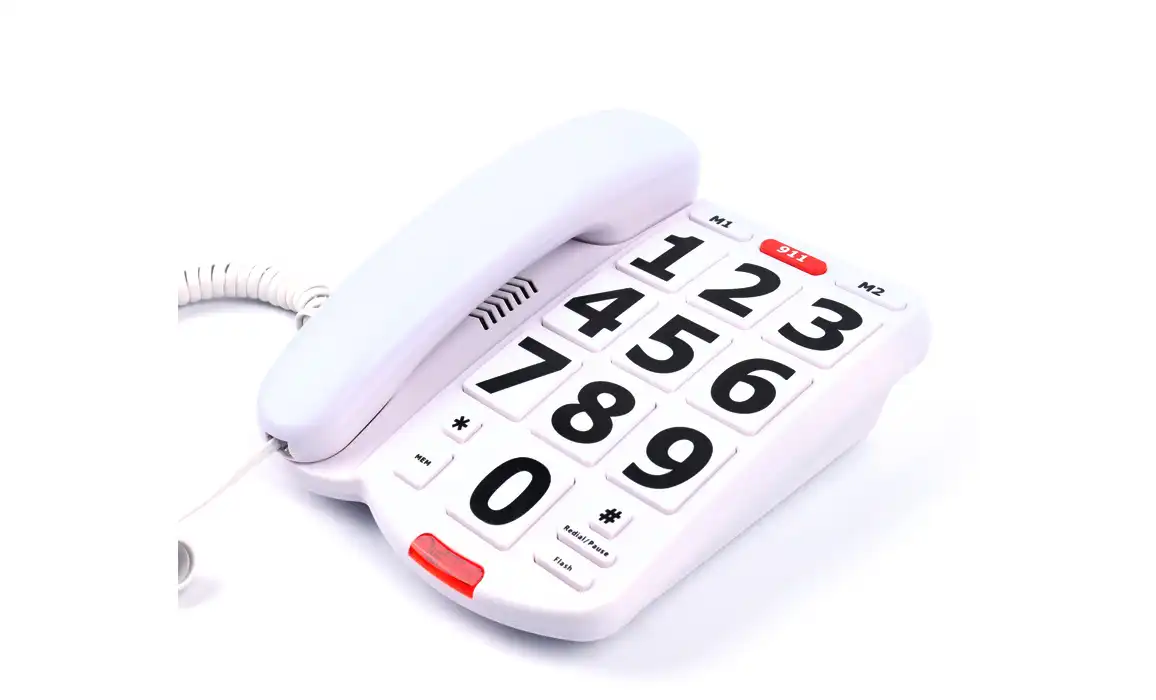
When adults are looking for an amplified landline phone, there are a few important things they should keep in mind to make sure it fits their wants and tastes.
Amplification Level and Sound Quality
The main thing that a boosted phone can do is boost the volume of sounds. Look for phones that let you change the amount of loudness, which should be at least 30 to 50 decibels. If you want to get the most out of your phone, make sure it can be adjusted to your hearing needs. Too much boosting can be annoying or even dangerous.
It's also important that the sound is good. Choose phones that can make sound that is clear and crisp, with little distortion even at high volumes. Some more modern types have tone controls that let users change the frequency response to better match how they hear.
Visual Aids and Ergonomic Design
The visible parts of the phone are very important for adults who have trouble seeing. Look for models with screens and buttons that are big and have a lot of contrast. Backlit keypads can be very helpful when there isn't much light. Some phones also have talking keypads that say each number as it is pressed, which is a good way to double-check.
The phone should be designed in a way that makes it easy to hold and use. Think about things like the phone's size and shape, how the buttons are laid out, and how easy it is to get to features you use often. To keep them from falling over by mistake, cordless types should be easy to hold and have good balance.
 Additional Features for Enhanced Usability
Additional Features for Enhanced Usability
There are extra features on many amplified landline phones that can make them much easier for adults to use:
• Caller ID screens that are big and easy to read
• A speakerphone for hands-free use
• Memory buttons for quick dialing of frequently called numbers
• An answering machine with a slow playback option
• Compatibility with hearing aids
• Emergency call buttons for quick access to help
• Photo buttons for easy visual recognition of contacts
When choosing a phone for a senior, think about which of these features would be most useful for them based on their wants and way of life.
Installation and Setup Tips for Amplified Landline Phones
It is very important to install and set up an amplified landline phone correctly so that it works well and the user is happy. These tips will help adults or the people who care for them get the most out of these gadgets.
Choosing the Right Location
Where you put the amplified landline phone can have a big effect on how well it works and how easy it is to use. When choosing where to put the phone, think about the following:
• Accessibility: Put the phone somewhere that is easy to get to, usually in the middle of the house.
• Lighting: Make sure there is enough light in the area so that it is easy to read the screen and buttons.
• Interference: Keep the phone away from things that can cause electrical interference, like TVs and radios, because they can change the sound quality.
• Stability: If you're using a portable model, make sure the base unit is on a stable surface so it doesn't get knocked over or fall over by mistake.
Initial Setup and Customization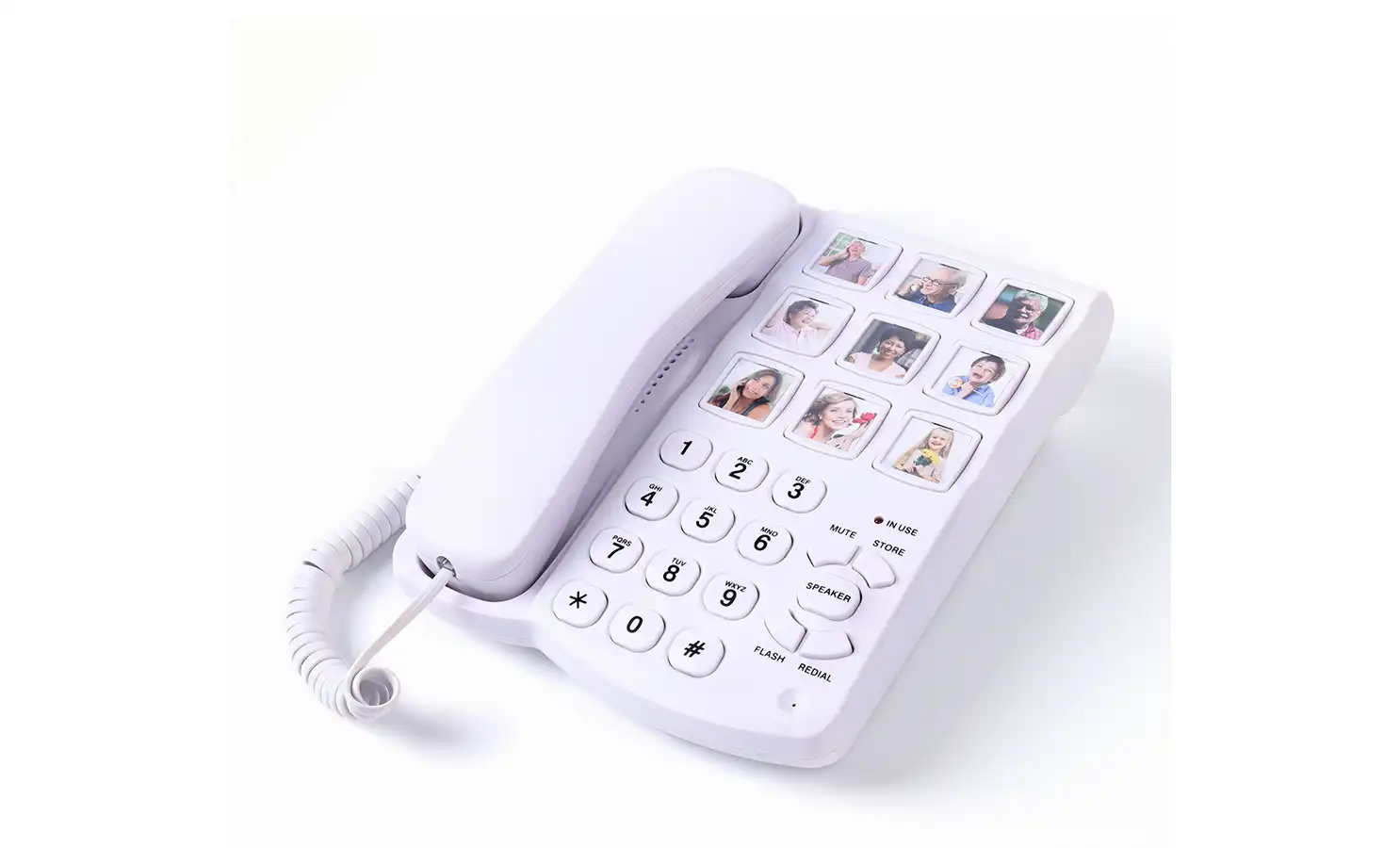
After setting up the phone, take the time to make sure it works the way you want it to:
• Setting for amplification: Set the volume to a comfortable level by starting low and slowly turning it up until speech is clear and easy to understand.
• Tone control: If it's possible, fine-tune the tone settings so that they work best for the person using them.
• Visual alerts: Set up visual ring signs and change how bright they are if you need to.
• Speed dial: Put numbers you call often into memory buttons so they are easy to get to.
• Answering machine: Record a clear outgoing message and set the playback volume appropriately.
The top user should be involved in this process and be able to try out different choices and give comments. This makes sure that the phone fits their wants and tastes perfectly.
Familiarization and Practice
After setting up the phone, tell the senior to try using it to get used to its features:
• Test the settings by calling family or friends to see how they work in real life.
• Get used to using different parts of the phone, like the call and memory buttons.
• Make sure they know how to change the call's volume and tone.
• If you need to, practice using the answering machine and getting notes.
Regular use and practice will help the adult feel more confident and at ease with the new phone, which will help them get the most out of it.
Conclusion
For adults who have trouble seeing or hearing, picking the right amplified landline phone can make their life a lot better. It is possible to find a phone that fits everyone's needs by looking at things like volume levels, visual guides, comfortable design, and extra features. Installing, setting up, and getting used to the phone correctly are important for making sure it works well and is comfortable to use. Seniors can stay independent, stay in touch with family and friends, and enjoy clear, stress-free conversation with the right amplified landline phone.
FAQ
How much boost do I need in a home phone for older people?
The amount of loudness needed depends on how hard it is for the person to hear. Most phones that can boost sound can do so up to 50 decibels or more. It is best to start with less volume and slowly add more until speaking is clear and easy.
Can hearing aids be used with an amplified landline phone?
The nature of many amplified landline phones makes them usable with hearing aids. Look for phones that say "HAC" on the box. This means that they are compatible with most hearing aids.
Can hearing-impaired individuals use amplified landline phones?
Yes, anyone can use an amplifier phone. For people who don't have hearing problems, the enhancement functions can be changed or turned off. This makes these phones flexible for homes with different needs.
Amplified Landline Phones: Enhancing Communication for Seniors | CHEETA
We at CHEETA know how important it is for adults to be able to communicate clearly. Because older people have special needs, our amplified landline phones are made with extra features to meet those needs. Our plant has been doing OEM/ODM work for more than 18 years and makes 1,000 analog units every day, so we can guarantee fast delivery and good quality. Our goods go through a lot of tests and meet the rules set by CE, RoHS, FCC, and UN38.3. For unique options for amplified landline phones, email our team at allen@cheeta.com.cn. You can trust CHEETA to make safe, easy-to-use communication gadgets for adults.

References
1. Johnson, M. (2022). "The Impact of Amplified Phones on Senior Communication." Journal of Gerontechnology, 15(3), 201-215.
2. Smith, A. & Brown, L. (2021). "Choosing Assistive Communication Devices for Older Adults." Geriatric Care Today, 8(2), 78-92.
3. National Institute on Deafness and Other Communication Disorders. (2023). "Age-Related Hearing Loss." NIDCD Health Information.
4. Lee, C. et al. (2020). "The Role of Technology in Maintaining Social Connections Among Seniors." International Journal of Aging and Society, 12(4), 345-360.
5. Wilson, R. & Taylor, S. (2022). "Advancements in Amplified Telephone Technology for Hearing-Impaired Individuals." Audiology Research, 7(1), 18-33.
 When adults are choosing an
When adults are choosing an 

